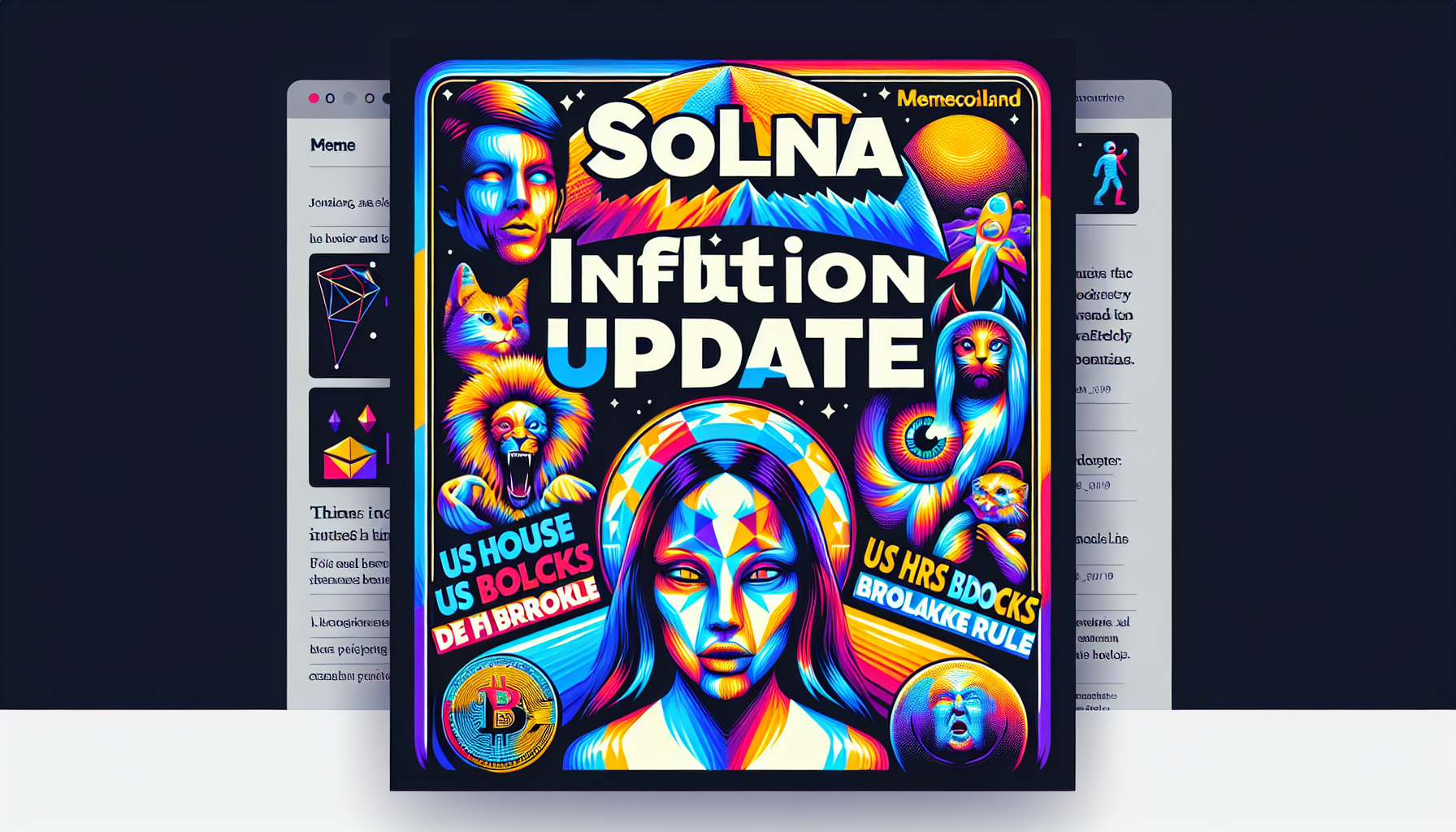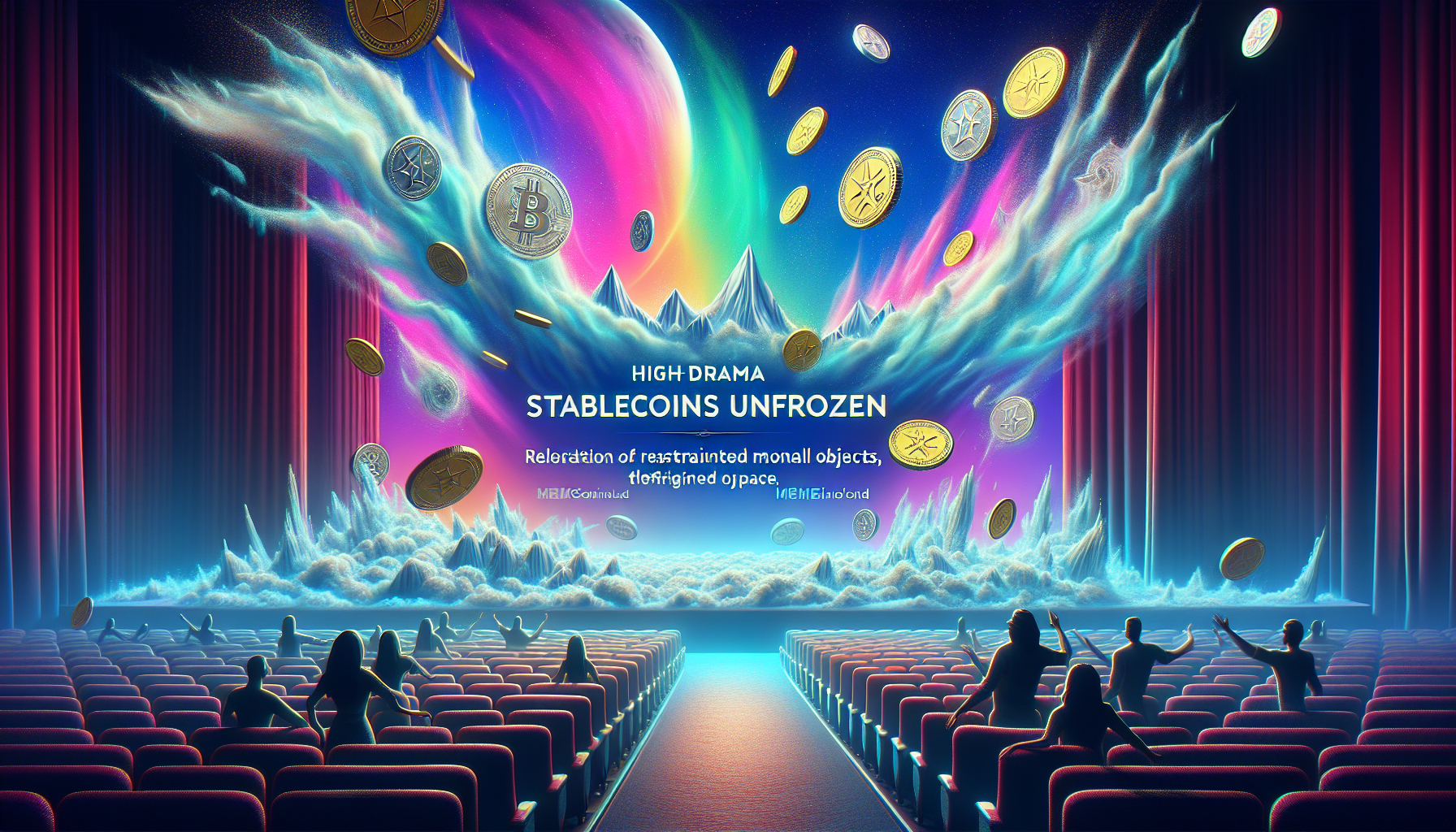 The crypto world is buzzing with excitement as the United States House of Representatives has taken a bold step to protect the privacy of decentralized finance (DeFi) enthusiasts. In a move that has the crypto community cheering, the House voted to nullify a bill that could have compromised the privacy-preserving nature of DeFi protocols. This decision marks a significant win for those who value the decentralized ethos of cryptocurrencies.
The crypto world is buzzing with excitement as the United States House of Representatives has taken a bold step to protect the privacy of decentralized finance (DeFi) enthusiasts. In a move that has the crypto community cheering, the House voted to nullify a bill that could have compromised the privacy-preserving nature of DeFi protocols. This decision marks a significant win for those who value the decentralized ethos of cryptocurrencies.
Meanwhile, in the realm of blockchain networks, Solana has faced a setback. A major governance proposal aiming to slash Solana’s inflation rate by a whopping 80% was turned down. This decision underscores the power of community governance in the crypto space, where stakeholders have a direct say in the future of their networks.
The US House’s decision to scrap the IRS DeFi broker rule is a game-changer. The rule would have required DeFi platforms to report crypto sales to the IRS, potentially infringing on user privacy. On March 11, the House voted 292 to 132 in favor of repealing this rule, following the Senate’s lead from March 4. Notably, while all votes to keep the rule were from Democrats, 76 Democrats joined Republicans in opposing it.
The proposed rule aimed to expand IRS reporting requirements to include DeFi platforms, mandating them to disclose transaction details. Republican Representative Mike Carey, who spearheaded the repeal motion, emphasized that the rule would have invaded the privacy of millions and stifled innovation in the burgeoning DeFi industry.
Over on the Solana network, a proposal to drastically cut its inflation rate was put to a vote but ultimately failed to pass. Despite this, Multicoin Capital co-founder Tushar Jain hailed the process as a victory for Solana’s governance. With 74% of staked supply participating, the proposal needed 66.67% approval but only garnered 61.4%.
Jain highlighted that this was one of the largest governance votes in crypto history, both in terms of participants and market cap involved. It served as a significant stress test for Solana’s governance framework, demonstrating the network’s resilience amidst diverse opinions.
In other news, Bitcoin’s potential retracement to $70,000 is being viewed as part of a “macro correction” within an ongoing bull market. Despite recent price dips, analysts remain optimistic about Bitcoin’s long-term trajectory. Aurelie Barthere from Nansen crypto intelligence platform suggests that this correction is part of broader market dynamics and not indicative of an impending bear market.
The crypto landscape is also witnessing calls for stricter regulations on politically endorsed memecoins following the collapse of Libra token. The token, backed by Argentine President Javier Milei, saw a $4 billion market cap wipeout due to insider cash-outs. Industry experts are advocating for stronger investor protections and liquidity safeguards to prevent similar incidents.
Hyperliquid, a blockchain network specializing in trading, has responded to a recent $4 million liquidation loss by increasing margin requirements for traders. This move aims to mitigate systemic risks associated with large positions in volatile markets.
As we wrap up this week’s crypto highlights, it’s clear that the decentralized finance space continues to evolve rapidly. From regulatory developments to governance challenges and market dynamics, the crypto world remains as dynamic as ever. Stay tuned for more updates as we navigate this exciting frontier together!




